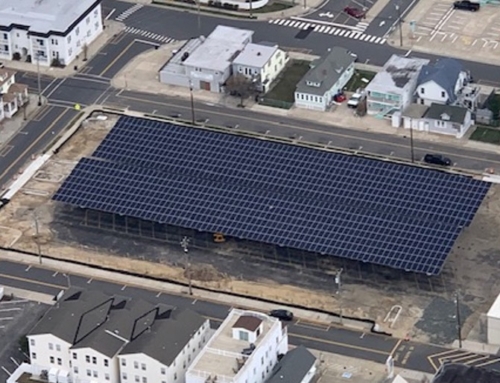Are Solar Energy Systems Worth It for Commercial Buildings?
Solar energy is a popular way to reduce energy costs and become more energy independent. It’s more affordable than ever due to falling prices and increased efficiency. For example, you can install solar panels on various surfaces, including roofs, parking lots, and undeveloped property. The long-term benefits of reduced energy costs and a smaller carbon footprint make solar energy systems a worthwhile investment for commercial buildings.
The Various Benefits of Installing a Solar Energy System
Commercial solar energy systems offer several advantages over traditional grid-tied electricity systems.
Save Money on Your Electric Bill
A solar energy system can significantly reduce your business’s electric bill, sometimes even eliminating it. The average commercial solar energy system can reduce energy costs by 75%, making it a desirable option for businesses. The amount of money that you save will depend on sun exposure and your business’s overall electricity usage.
Predict Energy Costs
Unlike traditional energy sources, commercial solar energy systems provide a fixed price for energy, making it much easier to predict future costs. With energy prices rising at an average rate of 4% per year, the savings can add up over time. By installing a commercial solar energy system, you could effectively prepay for decades’ worth of energy at a fraction of your current electricity costs.
Enjoy Energy Independence
A reliable source of energy is essential to keeping business operations running smoothly. But what happens when the power goes out or prices spike? Solar panels for commercial buildings can provide your business with energy independence, meaning you’re not as vulnerable to power outages or price fluctuations from the utility company. Solar can provide power during an outage, and solar-powered businesses can often keep operating even when the electric grid goes down.
Generate Revenue from Excess Power Production
Solar panels can generate revenue for your business if your solar energy system produces more power than your business needs. Solar policies vary state by state, so research the programs available in your area.
- Net Metering. Many utilities offer net metering programs, enabling businesses to sell excess solar power back to the grid at the same rate that they purchase energy. The credits offset the cost of power that you pull from the grid for times that your solar panels aren’t producing enough to meet your needs, like at night or during cloudy weather.
- Solar Renewable Energy Credits (SRECs). These are solar credits that can be sold or traded in a solar renewable energy market. The price of an SREC varies depending on market conditions and solar policies in your state.
Get a Solid ROI from Solar Energy Systems
The cost of solar energy has decreased by over 60% in the past decade, making it an increasingly attractive option for business owners. Solar energy systems eventually pay for themselves, with most systems recouping their initial investment and businesses seeing profits within five to ten years. The payback period depends on the cost of the solar energy system, the solar incentives in your state, the amount of solar energy that you produce, and the cost of electricity.
Once you’ve reached ROI, you’ll get clean energy for the life of your solar energy system. The typical lifetime for a commercial solar setup is twenty-five to thirty years.
Qualify for State and Federal Tax Credits
Solar energy is a wise investment for businesses, and several financial incentives are available to help offset the cost.
- Federal solar investment tax credit. This enables businesses to deduct 26% of the cost of their solar installation from their taxes. This credit will be in effect through 2022 and will expand to 30% until 2032. In 2033 and 2034, the credit for commercial properties will drop down to 26%.
- State incentives. Many states offer incentives for businesses that install solar energy systems, including tax breaks, rebates, and other financial incentives.
- Depreciation deduction. Companies can take a depreciation deduction for the cost of their solar panels. You can take this deduction in the first year after installation.
Should Your Company Switch to Solar Energy?
Solar panels for commercial buildings are the answer if you’re looking for a way to reduce or eliminate your electric bill and provide energy independence for your business. Have your energy needs assessed by one of Geoscape’s experts to estimate the cost of switching to solar energy. They can help you find the best financing option for your business so you can maximize your ROI.
At Geoscape Solar, we help businesses utilize solar energy for profit. Your business will become energy independent, be able to decrease utility costs, and leverage available solar incentives for a quick ROI.
To discover how installing solar energy on your property will increase your business profitability, contact one of our energy specialists!


